
OR
Opinion
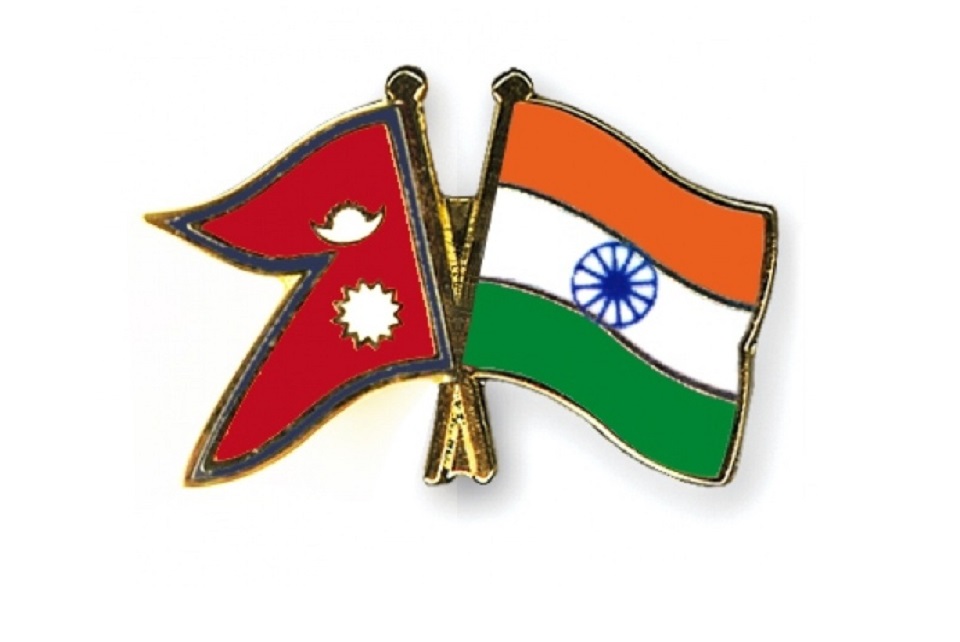
For sure, the Indians must worry about their country's security in their neighborhood, including Nepal. However, they should make sure if their worries are founded on the current reality. And they must also understand that only a sovereign and strong Nepal can deliver Indian security expectations, not an unstable and micromanaged one.
The book by erstwhile Indian Ambassador to Nepal, Ranjit Rae, 'Kathmandu Dilemma,' begins with the quest for answering the query of the Indian Prime Minister Narendra Modi, who had asked why the Nepalis didn't like the Indian establishment – 'why don't they like us?' That was a 'million-dollar' question a thoughtful leader had asked that deserves an honest response. Who knows, the answer might pave the way for a novel relation between India and Nepal, desperately needed in the twenty-first century. Unfortunately, Rae missed the opportunity to furnish a candid answer to his boss.
What he has portrayed as a cause of anti-Indian sentiment in Nepal, in fact, is not a cause but an effect of the Indian approach toward Nepal. It should have been obvious that, since anti-Indian attitudes are directed to India, the cause must have originated there. Philosopher Arthur Schopenhauer once said, "Every man takes the limits of his own field of vision for the limits of the world." If India is serious about fulfilling its national interest in Nepal, it should first introspect to find the root cause, not just survey the symptoms outside.
The Indian outlook toward Nepal is not monolithic. There are at least three different schools of thought among security, diplomatic and political communities. The Indian military wants to maintain a cordial relation with Nepal not just because of Gurkhas in the Indian Army but also because it sees the Nepali Army as a partner that could be useful in addressing Indian security interests. The diplomats in the 'South Block' (the location of MEA in New Delhi) believe that Nepal is a 'small brother' of India that should obey the big one. Much to the Nepali chagrin, they repeatedly invoke the 'special relation' rhetoric to allude that Nepal is under Indian suzerainty. The latest example is the tweet from the Indian Minister of External Affairs, S Jayashankar, mentioning the same after meeting with his Nepali counterpart during the last UN General Assembly.
On the other hand, Indian politicians have diverse views toward Nepal, and they tend to think through current realities rather than the past preconception. However, since the colonial legacy keeps conditioning the 'South Block' bureaucracies, the Indian polity is considerably influenced by orthodox thinking while dealing with Nepal. The Indian intelligence community is a whole new ball game.
The British Raj mindset still influences all three blocks, albeit to different degrees. And, they believe Nepal is under the security umbrella of India. This was the bygone-era thinking that the territory in the Himalayas and Hindukush was a buffer zone to protect the British colonies in South Asia from Russia and later communism from China. Sea changes have taken place in the social, political, and economic aspects in the region and the world over the last seven decades. Regrettably, the Indian security mentality is hardly changing.
While some Indian policymakers embrace the revisionist idea of 'Bharatvarsh,' the notion is unrealistic and counterproductive to its own ambition of becoming a regional and global power. This concept is commensurate with Chanakya Niti, which many Indian diplomats, politicians, and military personnel revere and try to emulate. For instance, Shyam Saran, another former Indian Ambassador to Nepal, in his book 'How India Sees the World', maintains that, "The idea of making the subcontinent whole again is a powerful driver of India's foreign policy behaviour." Kautilya's policy is ruthless pragmatism. In his famous lecture, Politics as Vocation, Max Weber asserts that the 'Truly radical Machiavellianism is expressed in Kautilya's Arthashastra.' He further argues - compared to Arthashastra, Machiavelli's 'The Prince' is harmless.
The advancement of Bharatvarsh and Chanakya is undoubtedly an effort to promote ancient Indian legacy and create a unique Indian identity that they might be thinking necessary to project Indian power in regional and international theaters. This is understandable. Still, the Indian policymakers do not try to understand that the revisionist approach associated with those concepts comes with a considerable price tag. Also, such utopian notions are unachievable.
Rae's book is trying to prove the same flawed hypothesis that Nepal is under the security umbrella of India, and its micromanagement is legitimate. Also, some of his socio-political analyses and syntheses are not accurate. For instance, dividing Nepal's society into three broad categories (Bahun-Chhetri, Janjati, and Madhesi) might have been inspired by showing that 'minority rules the majority' in Nepal. But the generalization is a superficial depiction of the current sociological realities and political dynamics. Nepal has always been a country of minorities.
Without a doubt, Madhesis were not adequately accommodated in the political mainstream in the past. Along with Madhesis, ruling elites deprived several ethnic minorities, Dalits, women, and other backward communities of socio-economic-political opportunities. That is why the revolutions happened, and now Nepal has a new constitution that captures the most legitimate demands of various groups. With the new political system, Nepal is trying to mend the cracks in Nepali societies. But those who try to drive a wedge between Pahadis and Madhesis, or between any groups for that matter, cannot be Nepal's friend.
For sure, the Indians must worry about their country's security in their neighborhood, including Nepal. However, they should make sure if their worries are founded on the current reality. And they must also understand that only a sovereign and strong Nepal can deliver Indian security expectations, not an unstable and micromanaged one. Undermining Nepal's political development and patronizing Nepal's security apparatus does not support Indian interests. Rae prescribes that Indian polity should treat Nepal with economic 'carrot' and security-umbrella 'stick.' Fellow Indians should be mindful that Nepal cannot enjoy economic development at the cost of its sovereignty. Both should go hand in hand.
It is not just about Ranjit Rae or Kathmandu Dilemma - it is about the existing general attitude of the Indian diplomatic circle. It is also about the impasse that prohibits the maximization of India-Nepal relations. For sure, Rae was unable to rightly advise (pun intended) Modi. Instead, he wrongly diagnosed the pathology and suggested a cure that is worse than the disease itself. Offering the Bhutanese model will not solve the Indian dilemma in Nepal. Instead, it escalates further. The secret sauce of mending the India-Nepal relation is the amendment to the 1950 unequal treaty as per the EPG's recommendation.
Not that Ranjit Rae did not analyze the various facets of the Nepal-India relational dilemma in his engaging book. He did. There has indeed been political instability in Nepal; as Rae has rightly pointed out, and political parties share some blame for creating the mess. However, a significant amount of Rae's reasoning has fallen prey to the stereotypical thinking of the 'South Block' that has made him deduce Nepal is the same as Bhutan. There is an old saying: you cannot solve a problem unless you first accurately define it. I hope Rae would not disagree; like India, Nepal has a legitimate right to adopt a hedging strategy when either of its neighbors tries to compromise Nepal's vital national interests.
Nepal cannot tolerate the 'big' or 'elder' brother attitude, undermining Nepal's sovereignty. The international environment, as well as regional realities, will not allow that to happen. Nepal is not Bhutan as Rae has been trying to portray, which is absolutely a false analogy. The thirty million Nepalis in the country and the Nepali diaspora worldwide would not tolerate compromising Nepal's sovereignty. Various past incidents have made the Nepali population politically conscious and alert. Whatever logic Rae gives, Nepalis will not allow ceding even an inch of its land in Lipulekh-Kalapani. However, Nepalis are friendly people who can be won by extending the hand of friendship, not by condescending. At the same time, Nepal cannot and will not challenge its neighbors' sovereignty and security concerns, despite claiming its sovereign equality.
Reverting to Prime Minister Modi's question, an unbiased analysis would have revealed that Nepal's anti-India feeling is against the 'South Block' mindset and certain Indian attitudes, not against the whole Indian society and the state. If somebody attempts to portray the Nepalis’ anti-India feelings as being against the entire Indian population, that is just a smokescreen to hide the mishandling of Nepal-India relations by the South Block. 'Roti-Beti Sambandh' existed well before the nation-state system emerged in this region and will remain even if the nation-state concept vanishes. That age-old social-cultural relationship at peoples' level is not the same as political-diplomatic relations between two sovereign states and must not be intermingled but rather respected. Nepalis love almost everything Indian, whether it is movies, music, literature, food, you name it. In a way, the anti-India feeling in Nepal is akin to the anti-US sentiment in India, especially during the pandemic. Indians were not against the American people, I suppose, but against the attitude of certain US establishments.
Finally, it would be disingenuous to state that India has not supported Nepal's economic, social, and political development. India has done a lot until now and has been trying to do even more in recent days. If implemented effectively - despite mixed results so far - the neighborhood first policy can benefit both countries. As mentioned earlier, the Indian viewpoint toward Nepal is not monolithic – there are many 'friends of Nepal' in India. Yet, the stereotypical mindset has stolen the show of a potentially vibrant partnership between India and Nepal. Nevertheless, the 'political will' of Indian statesmen can untangle this conundrum and usher in a new dawn in India-Nepal relations for a win-win proposition.
You May Like This
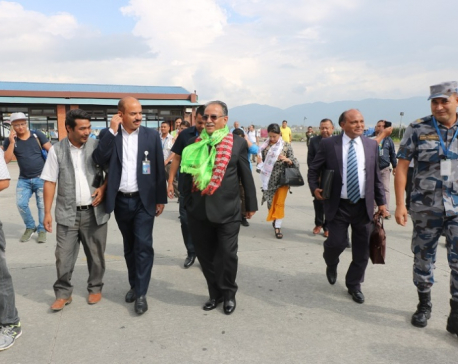
Dahal returns home, says visit was successful
KATHMANDU, Sept 9: Chairman of Communist Party of Nepal (CPN) Pushpa Kamal Dahal has returned home wrapping 4 days visit... Read More...

Nepal online trade: Decorating Nepal
Nepal Online Trade is a business initiative of Sajak Yonjan that sells décor materials imported from China, Hong Kong, and... Read More...
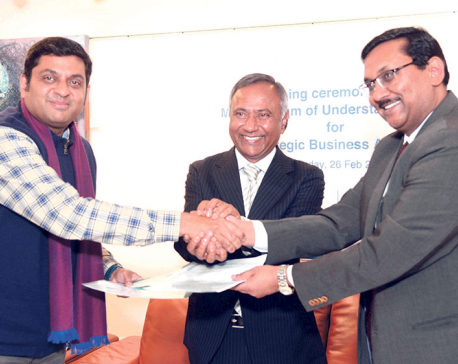
Standard Chartered Bank Nepal, Nepal Mediciti join hands
KATHMANDU, Mar 1: Standard Chartered Bank Nepal Ltd (SCBNL) and Nepal Mediciti have signed an agreement to provide various discounted... Read More...




Just In
- SC rejects writ petition filed against Home Minister Lamichhane
- Nepal and China sign two agreements in the presence of Finance Minister Pun
- Pun released on bail in Supreme Cooperative fraud case
- Govt should not look for enforcing populist budget for next FY: Former finance ministers
- DoFE requests relevant parties to provide essential facilities to foreign workers traveling abroad
- Foundation stone laid for building a school in Darchula with Indian financial assistance
- 151 projects to be showcased for FDI in Third Investment Summit
- Police disclose identity of seven individuals arrested with almost 2 kg gold and more than Rs 10 million in cash












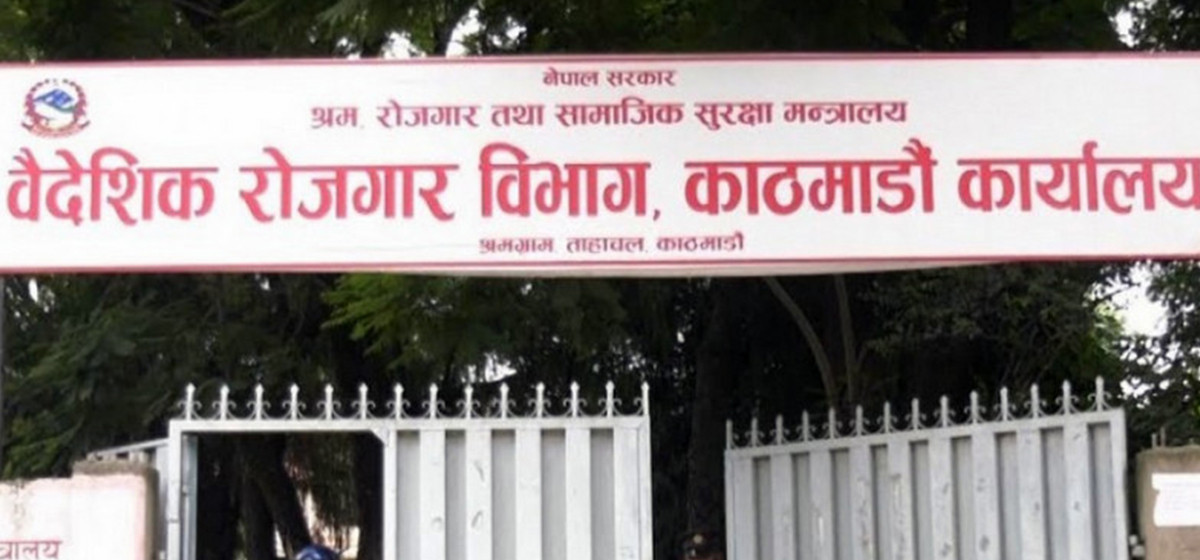
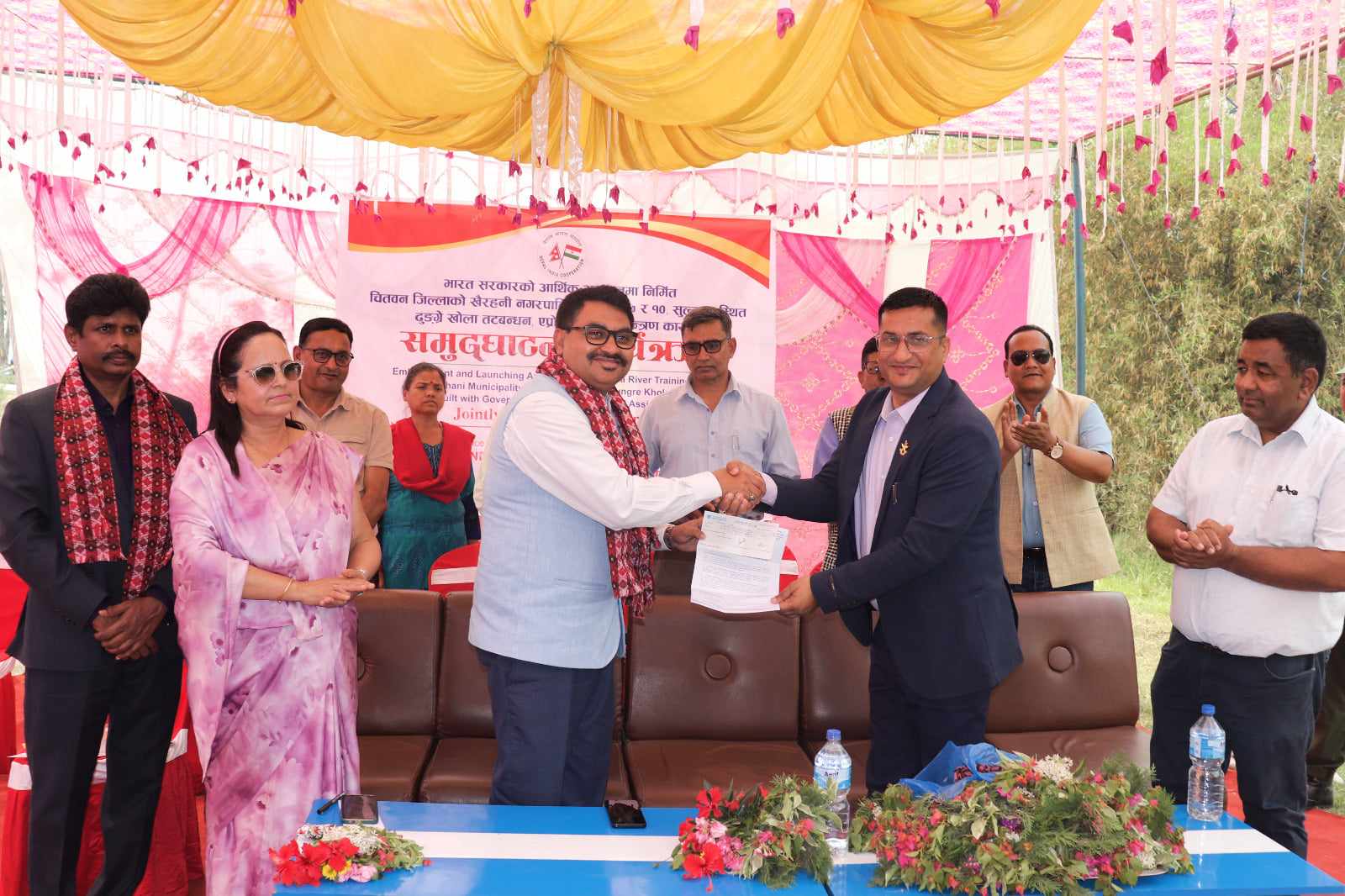


Leave A Comment